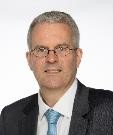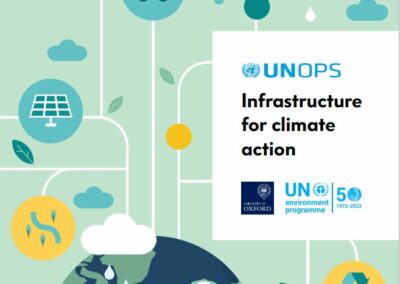ITRC’s webinar series introduced a large number of keynote speakers from across academia, the public and private sectors, who discussed a range of important points and issues. Their biographies and links to their social-media channels are provided below:

Webinar One
Model before you build, build, build: systems analysis of the future of national infrastructure
29 September 2020

James Richardson
Chief Economist, National Infrastructure Commission
James Richardson has been Chief Economist at the National Infrastructure Commission since April 2016. The NIC is an independent body, providing expert advice to the Government on pressing infrastructure issues. James heads the NIC secretariat’s economics team and leads on production of the UK’s first ever National Infrastructure Assessment, an in-depth assessment of the UK’s major infrastructure needs on a 30-year time horizon.
Prior to this, James was Director, Fiscal and Deputy Chief Economic Adviser at HM Treasury. He was responsible for advising on the fiscal stance, fiscal risks and the fiscal framework. James was Director, Public Spending and Chief Microeconomist at HM Treasury from September 2008 to July 2012. He ran Spending Review 2010 and led on reforms to public service pensions, following Lord Hutton’s independent report.
James has a PhD in economics from the London School of Economics (LSE).

Mark Enzer
Head of the National Digital Twin Program
As Mott MacDonald’s Chief Technical Officer, Mark is accountable to the Executive Board for technical excellence across the Group. As the Head of the NDTp within the Centre for Digital Built Britain (CDBB), Mark contributes to the leadership of this ambitious programme. In addition, he is the Digital Transformation workstream lead on “Project 13” for the Infrastructure Client Group, which represents the UK’s major infrastructure client organisations. Mark is a keen champion of innovation in the context of collaborative delivery models and he is particularly interested in the transformation of the infrastructure industry, including: systems-thinking, digital transformation, connected digital twins, information infrastructure, low-carbon sustainable solutions and the circular economy in the built environment.
Webinar Two
Development Alternatives for the Oxford-Cambridge Arc
6 October 2020

Alan Penn
Chief Scientific Adviser at the Ministry of Housing, Communities and Local Government
Professor Alan Penn is the Chief Scientific Adviser at the Ministry of Housing, Communities and Local Government (MHCLG).
A Professor in Architectural and Urban Computing at University College London (UCL), Alan’s research focuses on understanding the way that the design of the built environment affects the patterns of social and economic behaviour of organisations and communities.
Before joining MHCLG, Alan was Dean of The Bartlett Faculty of the Built Environment at UCL. He was Chair of the Architecture, Built Environment and Planning sub-panel for REF2014 and for RAE2008. Alan is a board member of Space Syntax Ltd, a technology spin-out from UCL, and is trustee of the Shakespeare North Trust, a charity which is constructing a new Shakesperian theatre and educational centre in Prescot, outside Liverpool.

Bev Hindle
Director, Oxfordshire Growth Board Oxford to Cambridge Arc Leaders and Chief Executive Groups
In Oxfordshire, Bev’s role is to work across all partner authorities and key private and public sector delivery bodies to help deliver our planned growth. The key focus is the Housing and Growth Deal where there is commitment to accelerate homes through the timely delivery of £150m of infrastructure, to deliver a £60m affordable housing programme, to deliver a statutory spatial strategy for Oxfordshire to 2050 and to deliver a strong Local Industrial Strategy.
For the Arc, Bev’s role is to help coordinate and lead the development of a new Arc-wide collaborative network of over 30 Local Authorities and LEPs/Business Boards. This emerging network will work closely with the Government, Arc universities, the emerging Sub-National Transport Body, business and the public to define a common narrative for the Arc ensuring we are planning to deliver sustainable and inclusive communities for now and for the future whilst delivering a globally significant regional economy.


Webinar Three
Infrastructure for sustainable international development
12 October 2020

Fabian M. Felix
Civil Engineer -National Integrated Planning and Programme Unit (NIPP) located at the Ministry of Finance, Saint Lucia
Fabian graduated from Lincoln University of Missouri (USA)-Summa Cum Laude with a Bachelor’s of Science Degree in Civil Engineering Technology in 2007 and began his technical career at the Department of Transportation of Missouri as a Highway Materials Inspector. He returned to his home country Saint Lucia in 2009 where he served as clerk of civil works, overseeing the rehabilitation of schools across the entire island for the Ministry of Education. He later joined the Housing Ministry and developed housing metrics and affordable housing initiatives to help government reduce a large housing deficit. He later joined the private sector as a project manager during which he executed many beachfront hotel and residential developments in Saint Lucia. Fabian later joined UNOPS’ team in 2016 and contributed to projects in health facility assessment and re-construction, educational building re-habilitation, potable water treatment and supply systems design and construction, urban rejuvenation and city Planning among others across the Caribbean region. Currently back with the Government of Saint Lucia and embedded in the Department of Finance, Fabian’s unit [the NIPP] reports directly to the Permanent Secretary of Finance and the Prime Minister of Saint Lucia on Sustainable and integrated Infrastructure Planning. He is a Project Management Professional (PMP), holds an MBA and is a graduate member of the ICE. He is currently pursuing a Master Degree in Civil Engineering from Heriot Watt University.

Steve Crosskey
Deputy Director, Infrastructure and Project Management Group UNOPS
Steve Crosskey is a Civil Engineer with nearly 30 years of experience in the Civil Engineering industry, within both the private and development sectors. A major area of focus for Steve has been sustainability, and he has great experience in Institutional Capacity and Community Development in infrastructure projects, including review and recommendations on policy, and development strategy. Steve joined the United Nations Office for Project Services (UNOPS) in September 2014. In his current position, Steven leads a multi disciplinary team that provides the standards, guidance and training for UNOPS in infrastructure and project management, and has also worked, inter alia, on new strategies and tools to assist governments to provide infrastructure and project management solutions in the context of the global agenda 2030.
Webinar Four
Net zero energy and transport systems
21 October 2020

Nick Eyre
Director, Centre for Research into Energy Demand Solutions and Professor of Energy and Climate Policy, Environmental Change Institute, University of Oxford
Nick Eyre is Director of the Centre for Research into Energy Demand Solutions, CREDS. He is Professor of Energy and Climate Policy in the Environmental Change Institute of the University of Oxford. He is Director of Energy for the University, leading its energy research network, and a Co-Director of the Oxford Martin Programme on Integrating Renewable Energy.
From 2007 to 2017, he was a Director of the UK Energy Research Centre, and before that Director of Strategy at the Energy Saving Trust.

Siobhan Campbell
Head of the Central Research Team, deputy Chief Scientific Adviser
Siobhan Campbell is Deputy Chief Scientific Adviser and Head of the Central Research Team in the Department for Transport (DfT). Here she oversees the central science, social & behavioural and evaluation teams, with particular interests in the Future of Mobility; building science, research and innovation across the transport sector; and the evidence required to help decarbonise transport. She is the deputy head of the UK government’s Social Research profession (GSR), helping provide leadership and direction to its 1,500 GSR members.
Prior to DfT, Siobhan worked in a number of government departments including the Department of Energy and Climate Change, HM Treasury, the Scottish Government and the Home Office. She has a Ph.D. in psychology from the University of Glasgow.

Alec Waterhouse
Head of the Central Modelling Team, Department for Business Energy and Industrial Strategy
Alec is Head of the Central Modelling Team in the Department for Business Energy and Industrial Strategy. His team are responsible for working out how much green-house gas the United Kingdom are projected to emit. He and his colleagues develop a range of models that make these projections, taking into account the effect of government policies and a host of other factors. The team also work on models that help to understand how we can meet our long term emissions targets and how government energy policies affect consumers. They have designed and built a bespoke policy simulation language for household energy modelling. He also leads for the department on quality assurance programme for analytical models. Alec started his working life as an engineer. After getting fed up of getting wet and dirty he moved into Operational Research. Since then he has worked in a wide variety of organisations ranging from the retail to public sector.


Webinar Five
Creating resilient infrastructure networks
28 October 2020

Carlos Sanchez
Director | Climate Resilience Investment, Climate and Resilience Hub, Willis Towers Watson
Carlos Sanchez is a Climate Resilience Investment Director at Willis Towers Watson. His work focuses on the promotion of investment solutions aimed at fostering a more efficient pricing of physical climate risks within investment decision-making processes. Carlos is also the Executive Director for the Coalition for Climate Resilient Investment (CCRI). A flagship COP26 initiative, CCRI is led by the private sector and has a growing membership of 60+ institutions committed to the development and testing of solutions for resilient investment decision-making.
Prior to joining Willis Towers Watson, Carlos managed a climate resilience finance facility at the Multilateral Investment Fund – part of the Inter-American Development Bank Group – also dedicated to identifying specific investment opportunities in connection to physical climate risks.
In the past Carlos worked at the Economic Office of the Spanish Embassy in Angola as Foreign Direct Investment Advisor and later as Business Development Manager for a project finance advisory firm.
Carlos holds a Masters in Finance from the London Business School where he contributed to the drafting of the ESG chapter within LBS’ Private Equity textbook – and a Masters in Global Affairs from Georgetown University.

Mike Steel
Flood and coastal risk management expert advisor, Environment Agency
Mike is responsible for the Environment Agency’s long-term investment scenarios (LTIS) for flood and coastal risk management. LTIS is an economic assessment showing what future flood and coastal risk management could look like over the next 50 years in England. The latest LTIS study was published in 2019. Mike has previously worked on national flood risk assessment, and the plans to manage flood risk in the Thames Estuary until the year 2100 (TE2100). He has a PhD in hydrology and climate change, and is a Chartered Water and Environment Manager.
Webinar Six
Resilient water supplies in a changing climate
4 November 2020

Barney Dobson
Research associate, Department for Civil and Environmental Engineering, Imperial College London
Barnaby Dobson is currently a researcher at Imperial College London’s Department of Civil and Environmental Engineering working on integrated modelling of urbarn water systems.
By capturing the feedback between systems that are not usually coupled, his work aims to reveal unintended consequences and benefits across the water cycle. Previously he was a water supply modeller for the ITRC project at the University of Oxford’s Environmental Change Institute.
In this role he completed the national water supply model for England and Wales (WREW). The model has been used in the Environment Agency policy paper, “Meeting our future water needs: a national framework for water resources”.
He completed his PhD in reservoir operation optimization at University of Bristol Department of Civil and Environmental Engineering in 2018.
For more information, visit https://www.imperial.ac.uk/people/b.dobson

Jean Spencer
Independent Chair of National Framework for Water Resources, Senior Steering Group
Jean has over thirty years of experience in the water sector. Jean is the Independent Chair of the Senior Steering Group leading the development of a National Framework for Water Resources and coordinating Regional Plans.
Until her retirement, Jean was an Executive Director of Anglian Water Services, having joined the Board in May 2004 as Regulation Director and latterly leading on strategic growth and resilience.
Jean previously chaired the Water UK study of Water Resources Long Term Planning needs of England and Wales looking ahead fifty years.

Jonathan Dennis
Principal, Policy and Analytics, Regulators’ Alliance for Progressing Infrastructure Development
Jonathan is policy and analytics principal in the Regulators’ Alliance for Progressing Infrastructure Development (RAPID) which is a joint venture between Ofwat, the Environment Agency and DWI. He is focused on supporting the development of 5 regional water resources plans to make sure they meet future water needs regionally and nationally. After studying Environmental Science at the University of East Anglia he started his career as a scientist at Southern Water. He joined the Environment Agency in 2006 where he worked on a wide range of projects nationally, focusing on water demand management and water abstraction. In 2017 he led the development of the water abstraction plan in Defra. Following this he returned to the Environment Agency where he led the development of the water resources national framework, published March 2020.


Webinar Seven
Digital infrastructure strategies: from copper to fibre and 4G to 5G
9 November 2020

Tania Begazo-Gomez
Senior Economist, Digital Development, World Bank
Tania oversees major economic policy and research initiatives related to digital infrastructure and policy to inform thought leadership, corporate strategy and operational engagements with clients, with emphasis on Africa. She supports dissemination of knowledge on digital development and contributes to the formulation and implementation of country operations targeted at reforms in the digital sector, building on collaboration within the World Bank Group and external partners.
Formerly Tania was the Global Lead for the World Bank’s Markets and Competition Policy Team. Previously, Tania worked for the International Telecommunications Union, APOYO Consultoria, and the Peruvian telecommunications regulator (OSIPTEL). Tania holds a Master Degree in Public Administration in International Development from Harvard University.

William Lehr
Research Scientist, Computer Science and Artificial Intelligence Lab (CSAIL), MIT
William Lehr is an Internet and telecommunications industry economist and research scientist in the Computer Science and Artificial Intelligence Laboratory (CSAIL) at the Massachusetts Institute of Technology (MIT) where he is part of the Advanced Network Architectures group. Dr. Lehr’s research focuses on the economic implications of ICT technologies for public policy, industry structure, and the evolving Internet ecosystem. He is engaged in multiple multidisciplinary research projects focusing on issues such as broadband Internet access, cybersecurity, next generation network architectures, and spectrum management. In addition to his academic work, Dr. Lehr advises public and private sector clients in the US and abroad on ICT strategy and policy matters. Dr. Lehr holds a PhD in Economics from Stanford and an MBA in Finance from the Wharton School, and MSE, BA, and BS degrees from the University of Pennsylvania. For more information, see http://people.csail.mit.edu/wlehr/

Julius Kusuma
Research Scientist at Facebook Connectivity Lab
I am working on technologies for enabling connectivity for the unconnected and improving connectivity in challenged areas. I am working to improve internet accessibility and internet speed, through a program called COSMIC — Comprehensive Optimization, Simulation and Modeling In Connectivity. The COSMIC program comprises of several domains: Rural Connectivity, Urban Networks, User Experience.
Prior to Facebook, I was principal scientist and program manager at Schlumberger Research, working on communication and sensing systems for Subsurface and Subsea systems in the oilfield domain. I received my PhD from MIT in 2006, where I was an MIT Presidential Fellow; my MS from UC Berkeley in 2001, where I received the Demetri Angelakos Memorial Award; and my BS from Purdue University in 1999, where I received the Rappaport Wireless Comms Scholarship.

